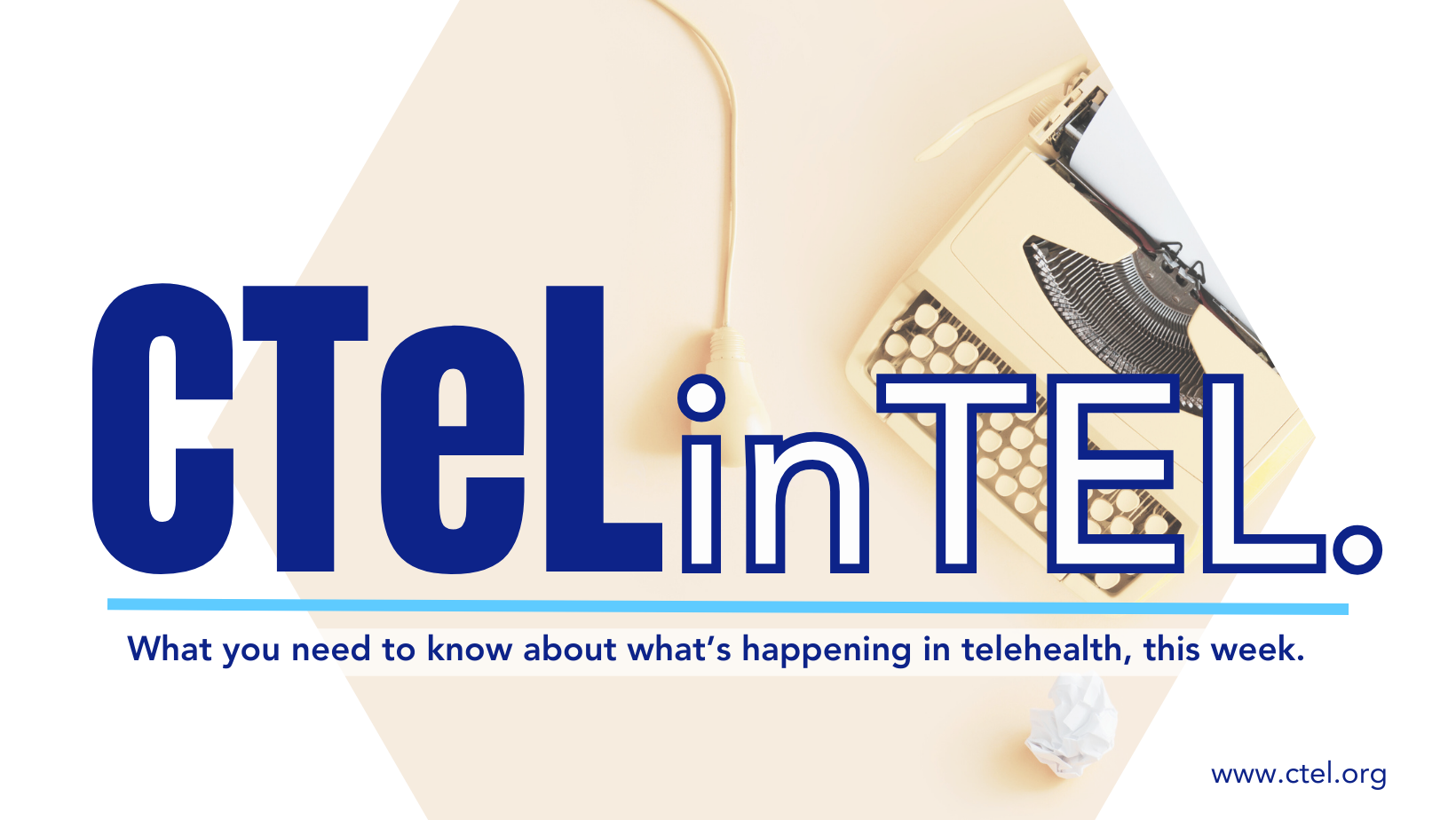Latest News and Media
Press Releases
-
In a letter to the Drug Enforcement Administration (DEA), the Center for Telehealth and e-Health Law (CTeL) joined [17] organizations in expressing concern over the impending expiration of waivers allowing for the telemedicine prescribing of controlled medications without an in-person visit.
CTeL is concerned that the DEA is likely planning to allow these waivers, initially promulgated in 2020 during the onset of the COVID-19 pandemic, to expire without public notice on December 31, 2024. To mitigate the spread of misinformation, CTeL has so far learned that:
The rules drafted by the DEA were stalled following opposition by the Department of Health and Human Services, based on concerns over the restrictiveness of the new rules.
The provisions contained in the draft rule are most restrictive specifically for Schedule II medications, such as a 50/50 in-person/virtual requirement and a required 50-state Prescription Drug Monitoring Program (PDMP) check before issuing a prescription.
DEA is still leaving the proposed rule on the Federal Register, but there is no indication that the rule will actually be issued and published. DEA is required to issue a proposed rule but is not required to do so before December 31, 2024.
The Biden Administration believes that this policy should come from the DEA.
The letter describes the wide-ranging and catastrophic effects that the Administration’s policy would have. “There is no clinical justification for requiring an in-person visit to prescribe controlled substances; this requirement often results in delayed treatment, increased travel burdens, and additional financial costs for patients. This is particularly concerning for cancer patients, those with chronic pain, mental health problems, or substance use disorders, those in the LGBTQ+ community, and the millions of others who require timely and ongoing access to medication,” the letter writes. The organizations signing the letter called on the DEA to:
Issue an immediate extension of current telemedicine prescribing waivers; and,
Begin the process of issuing a rule paving the way for a permanent extension of prescribing authority.
CTeL is encouraging the collective voice of the telehealth community through their sign-on letter addressing concerns of the expiring waivers. CTeL is encouraging additional action beyond this letter to involve state hospital associations and encourage communication with the administration about why this policy will rollback decades of telehealth progress and advancements. To join their efforts, sign the letter to Assistant Administrator Thomas Prevoznik today.
-
In a letter to Centers for Medicare and Medicaid Services (CMS), the Center for Telehealth and e-Health Law (CTeL) warned of the financial and clinical impacts of reduced telehealth access.
On July 10, 2024, CMS published the CY2025 Medicare Physician Fee Schedule Proposed Rule, detailing proposed Medicare payment policies for the coming year. In a letter sent to CMS on September 6, 2024, CTeL praised the agency for expanding audio-only telehealth access, extending flexibilities for virtual direct supervision requirements, and delaying enforcement of telehealth visit frequency limitations among other policies.
“We appreciate CMS’ commitment to expanding and protecting healthcare access, and we share the belief that telehealth and other digital health technologies play a crucial role in improving health outcomes, reducing health system costs, and addressing systemic health inequities,” said Christa Natoli, CTeL Executive Director in the letter.
However, the proposed rule serves as a stark warning: if Congress allows COVID-19-era telehealth flexibilities to expire, millions of patients could face severe disruptions to care. “The end of telehealth waivers would jeopardize the healthcare of millions, especially those in vulnerable populations,” said Lydia Homovich, CTeL Policy Analyst.
CTeL’s letter also highlighted the financial implications of restricted access, citing research that shows how telehealth reduces hospitalization rates, ultimately saving Medicare billions. CTeL is urging Congress to act swiftly to extend telehealth waivers and work toward permanent legislative solutions that protect the future of virtual healthcare.
CTeL In the News…
In response to the launch of the Congressional Digital Health Coalition:
“CTeL is a proud supporter of the Digital Health Caucus and works to actively promote the growth of innovative technologies with a commitment to fostering safe practices for patient access and well-being. We understand the transformative power of AI in our healthcare system and settings, we are committed to collaborating with Congress and digital health-focused organizations to propel AI and the future growth of digital health,” said Christa Natoli, Executive Director of CTeL.



